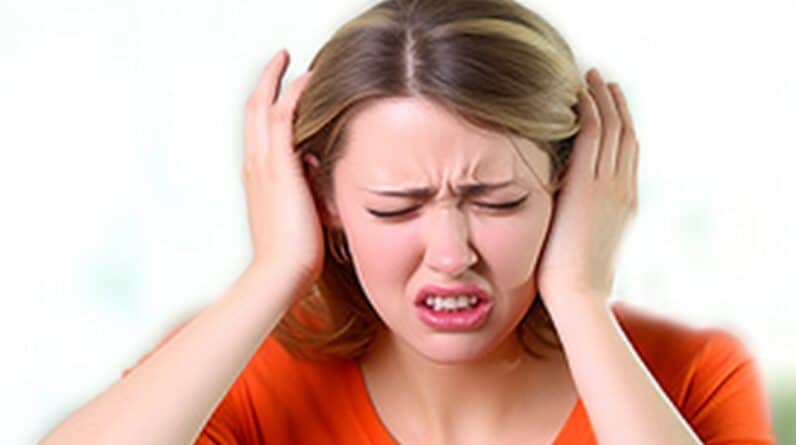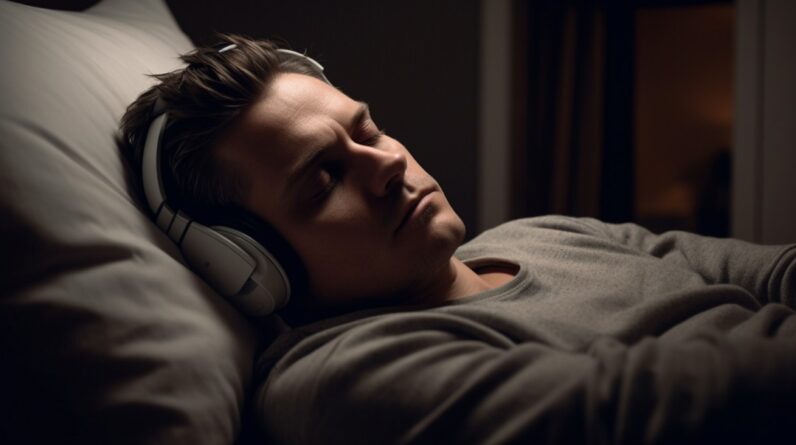
We may earn money or products from the companies mentioned in this post.
As an Amazon Associate I earn from qualifying purchases.
Introduction
Have you ever heard a ringing or buzzing sound inside your head, so faint, yet consistent enough to grab your attention? Welcome to the perplexing world of Tinnitus – a common condition that affects nearly one in five people around the globe.
Introduction to Tinnitus
Tinnitus is a health condition characterized by an incessant ringing, buzzing, hissing, or beating sound in the ears, generally only audible to the person affected. Contrary to popular belief, Tinnitus is not a disease but rather a symptom of a range of underlying health issues like hearing loss, ear injuries, or circulatory system disorders. For people living with Tinnitus, it’s not just a ringing noise but can often be more complicated. There are varying degrees to it with multiple types like Pulsatile Tinnitus, Musical Tinnitus, or, the focus of our engaging piece today, Low Pitch Tinnitus.
Discover more comprehensive details about this topic on our website, which is a treasure trove of all things related to Tinnitus. From uncovering causes, diving into potential remedies to Tinnitus Treatments, and how to get relief from this persistent ringing, we aim to provide a robust resource platform for Tinnitus patients and those interested in gaining insights into this condition.
What is Low Pitch Tinnitus?
Defining low-pitch tinnitus
Low-pitch tinnitus, as conveyed by its name, contrasts with its high-pitched counterpart as the sounds heard by the patients are of a lower frequency. The noises heard can range from a low roar, a hum, a drone, or even a rumble that others around you may not perceive. This different sound pitch can cause varying experiences for sufferers, often requiring unique approaches to cope with and treat this type of tinnitus effectively.
However, one question that pops up quite frequently in inquiries related to this condition is, “Can tinnitus be low-pitched”?
The distinct characteristics of low-pitch tinnitus
Often, we associate Tinnitus with high-frequency, shrill sounds. But the fact is, tinnitus can indeed be low-pitched. The primary distinguishing factor is that low-pitch tinnitus can often mask external sound, making it harder for the sufferer to hear sounds from their environment. That’s why this condition sometimes gets compared to the noises we hear when we cup our hands over our ears.
Learn more about this different experience in our comprehensive blog post about Low-Frequency Tinnitus. Here, we delve deeper into this topic, offering you a better understanding of low-pitched tinnitus and how it differs from other types.
Causes of Low Pitch Tinnitus
Now that we’re familiar with what low-pitched tinnitus is, let’s delve into the root causes behind this obscure sound symphony.
Understanding what causes low-pitched tinnitus
Low-pitched tinnitus may develop from various factors similar to those causing general tinnitus, with loud noise exposure being a common trigger. People who work in industries with high noise exposure, such as musicians or construction workers, are particularly susceptible.
Other potential triggers include age-related hearing loss or, in some cases, a side effect of certain medications.
However, remark it, we are dealing with “low pitched tinnitus causes,” which means the frequency of noise heard is lower compared to the more common high pitch tinnitus. This condition is often associated with a condition called Ménière’s disease, an inner ear disorder resulting from excessive fluid buildup in the inner ear.
Is there a link between head injuries and tinnitus?
While tinnitus is typically associated with hearing loss or other ear-related issues, it can also be a result of a head injury. Have you ever experienced an ear ringing after hitting your head? Well, this instance can cause tinnitus, including its low-pitched variant. To have a better understanding of the correlation between head injury and tinnitus, you can read more in our informative post about tinnitus from head injury.
Diagnosing and Assessing Low Pitch Tinnitus
How is low-pitch tinnitus diagnosed?
Just like all medical conditions, diagnosing your low-pitched tinnitus begins with a detailed assessment. Your doctor or a specialized audiologist will perform a “tinnitus assessment.” This assessment often includes a comprehensive look at your medical history and a careful examination of your ears, neck, and head.
A hearing (audiometric) test commonly forms part of this assessment. This test, together with tinnitus pitch matching, where you compare the pitch of your tinnitus with externally produced sound, helps identify whether you have low-pitched tinnitus.
To get a better idea of the varying techniques implemented in these assessments, check our informative post on Tinnitus Assessment.
Stay tuned as we continue to journey deeper into understanding the low-pitched tinnitus treatment methods and possible remedies. The lessons learned in the process are key to structuring a potential roadmap to somewhat silent, peaceful days.
Treatment and Natural Remedies for Low Pitch Tinnitus
Dealing with persistent inner ear buzz can indeed be a challenge. The good news? There are some ways to cope with or even alleviate the sounds that come uninvited.
Can a Chiropractor help with Tinnitus?
If medical treatments are not doing the trick for you, did you know that chiropractic treatment could possibly lend a helping hand? In some cases, tinnitus has been linked to a misalignment in the neck or jaw. The phrase “Can a chiropractor help with tinnitus” has often sparked curiosity among many tinnitus sufferers.
Yes, it can! Some sufferers have reported improvements after receiving chiropractic treatments. However, it must be noted that evidence is anecdotal, and thus it may not work for everyone. The chiropractor adopts a hands-on approach, applying controlled pressure to ease tension and realign the bones, potentially alleviating tinnitus symptoms.
Interested to know more? We have a detailed post discussing the connection between chiropractic practice and tinnitus on our website. Let’s pivot to our informative blog Can a chiropractor help with tinnitus?
Role of Noise Cancelling Headphones in Tinnitus Management
If you thought noise-cancelling headphones were only meant for enjoying a rich music experience, think again! They can act as a significant aid in managing tinnitus symptoms, particularly useful for those living with low-pitched tinnitus.
With “tinnitus noise canceling headphones”, you can embrace silence once again as these devices lower background noise, helping to quieten the rumbles of your tinnitus. However, it’s critical to remember that while headphones can help manage the symptoms, they aren’t a cure.
For more insights on the role of noise-canceling headphones in tinnitus management, do check out our informative guide on tinnitus-friendly noise-cancelling headphones.
Conclusion
Understanding Low Pitch Tinnitus is a significant first step towards managing it effectively. From detailed diagnostics to potential treatments, every stage adds to your knowledge and control over this persistent invisible creature called tinnitus. As we draw this discussion to a close, we hope you have gained a valuable understanding of low-pitched tinnitus. Remember, the condition is highly individual, and methods that work well for one might not yield the same results for another.
So, stay positive, keep exploring, and embrace your journey on the road to finding peace with your internal sound symphony.
Low Pitch Tinnitus - Frequently Asked Questions (FAQ)
Low pitch tinnitus refers to a type of tinnitus whereby the noise heard by the individual is lower in frequency compared to the typical high-pitched buzzing or ringing common in most types of tinnitus.
Low pitch tinnitus may be caused by several factors like exposure to loud noise, aging, certain medications, and Ménière’s disease. It can also be triggered by a head injury or after effects of one.
Some anecdotal evidence suggests that chiropractic treatment might help some individuals dealing with tinnitus, especially when it’s linked to the neck or jaw alignment issues. However, this is not a universal solution and may not work for everyone.
Noise cancelling headphones can lower the background noise, creating a quieter environment. This can make the tinnitus sound less prominent, helping individuals, particularly with low pitch tinnitus, to manage their symptoms better.
Diagnosing low pitch tinnitus is typically done via a detailed assessment that includes a comprehensive look at one’s medical history, an examination of the ears, head, and neck, and a hearing (audiometric) test.
Amazon and the Amazon logo are trademarks of Amazon.com, Inc, or its affiliates.
No related posts.








